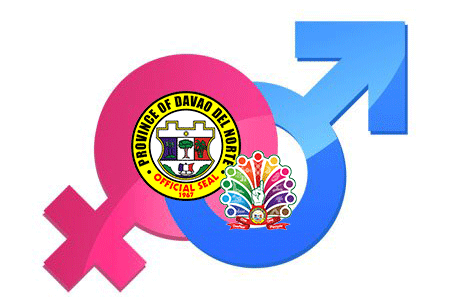
GAD Focal Point System
Davao del Norte Province
Background
As part of the global community, the Philippines is an active partner of the United Nation’s 2030 Sustainable Development Agenda which enumerated a total of 169 targets in pursuit of an inclusive, sustainable, and best future for all. Out of these targets, 17 Sustainable Development Goals (SGDs) were identified as its core with “No Poverty”, “Zero Hunger”, “Good Health and Well-Being”, “Quality Education'', and “Gender Equality” ranked as its top priorities.
As part of nation-building, the Province of Davao del Norte through the leadership of Governor Edwin I. Jubahib has resolved to put its best foot forward in contributing to the attainment of these global goals thereby creating its priority thrusts dubbed as K.U.Y.A. G.O.B. N.G. M.A.S.A. wherein the second “G” stands for Gender-Responsive Development. This governance strategy is cognizant with the importance of gender equality in the holistic development of a local government. It intends to fully eradicate all forms of gender discrimination thereby seeing every person, regardless of gender, empowered to reach their full potential in all aspects of life.
Since gender inequality is still witnessed and experienced everywhere that stagnates societal progress, this agenda aims to solidify the policies, strategies, and goals stipulated under Republic Act No. 9710 otherwise known as the Magna Carta of Women. This law is pursuant to Article 15 of the Philippine Constitution; and Republic Act No. 7160 or the Local Government Code of 1991; and General Appropriations Act (GAA).
The Magna Carta of Women guarantees the promotion, protection, and fulfillment of all women’s rights especially against all forms of violence, gender-based discriminations, and political issues. It translates the directives of the national government for a strengthened, peaceful, and prosperous nation where all its constituents especially girls and women are empowered to participate in any educational pursuits, career choices, and political activities; have security in times of disaster, calamities, and other crisis situations; have access to health care, travel, entertainment, sports, housing, family relations, and skills training, among others.
For the full implementation of this act, the Philippine Commission on Women (PCW), Department of the Interior and Local Government (DILG), Department of Budget and Management (DBM), and the National Economic and Development Authority (NEDA) issued Joint Memorandum Circular No. 2013-01 mandating for the localization of the Magna Carta of Women. In this circular, each local government unit (LGU) is directed to ensure gender-responsive governance through the establishment of Gender and Development Focal Point System (GFPS).
In response to this, the Gender and Development Focal Point System (GFPS) of the Province of Davao del Norte was established through Executive Order No. 21, Series of 2014, as amended by Executive Order No. 43, Series of 2020. The GFPS is tasked to ensure and sustain the LGU’s critical consciousness in supporting gender and development, women’s empowerment and responding to gender issues. They shall take a lead role in direction-setting, advocacy, planning, monitoring and evaluation, and technical advisory in mainstreaming GAD perspectives in the LGU programs, projects, activities, and processes.
The said circular also enumerated the proposed members of the Technical Working Group (TWG) and Secretariat of GFPS who are tasked to facilitate the gender mainstreaming efforts of the LGU through GAD planning and budgeting process; formulation of LGU GPB in response of the gender gaps and issues faced by their constituents including their women and men employees; conduct of advocacy activities and development of information, education and communication (IEC) materials; preparation and consolidation of LGU GAD Accomplishment Reports (ARs) and other GAD-related reports; among other tasks and functions.
Through it all, GFPS and its TWG and Secretariat envision on establishing women and men’s issues and concerns as intrinsic part of the design, implementation, monitoring, and evaluation of policies, programs, and projects in all social, political, civic, and economic realms.

